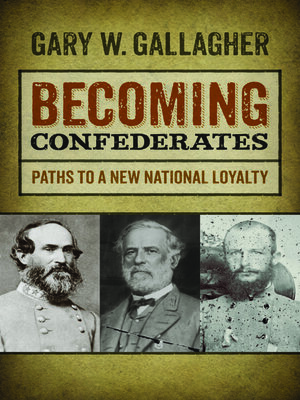Becoming Confederates
ebook ∣ Paths to a New National Loyalty · Mercer University Lamar Memorial Lectures
By Gary W. Gallagher

Sign up to save your library
With an OverDrive account, you can save your favorite libraries for at-a-glance information about availability. Find out more about OverDrive accounts.
Find this title in Libby, the library reading app by OverDrive.



Search for a digital library with this title
Title found at these libraries:
| Loading... |
In Becoming Confederates, Gary W. Gallagher explores loyalty in the era of the Civil War, focusing on Robert E. Lee, Stephen Dodson Ramseur, and Jubal A. Early—three prominent officers in the Army of Northern Virginia who became ardent Confederate nationalists. Loyalty was tested and proved in many ways leading up to and during the war. Looking at levels of allegiance to their native state, to the slaveholding South, to the United States, and to the Confederacy, Gallagher shows how these men represent responses to the mid-nineteenth-century crisis.
Lee traditionally has been presented as a reluctant convert to the Confederacy whose most powerful identification was with his home state of Virginia—an interpretation at odds with his far more complex range of loyalties. Ramseur, the youngest of the three, eagerly embraced a Confederate identity, highlighting generational differences in the equation of loyalty. Early combined elements of Lee's and Ramseur's reactions—a Unionist who grudgingly accepted Virginia's departure from the United States but later came to personify defiant Confederate nationalism.
The paths of these men toward Confederate loyalty help delineate important contours of American history. Gallagher shows that Americans juggled multiple, often conflicting, loyalties and that white southern identity was preoccupied with racial control transcending politics and class. Indeed, understanding these men's perspectives makes it difficult to argue that the Confederacy should not be deemed a nation. Perhaps most important, their experiences help us understand why Confederates waged a prodigiously bloody war and the manner in which they dealt with defeat.






